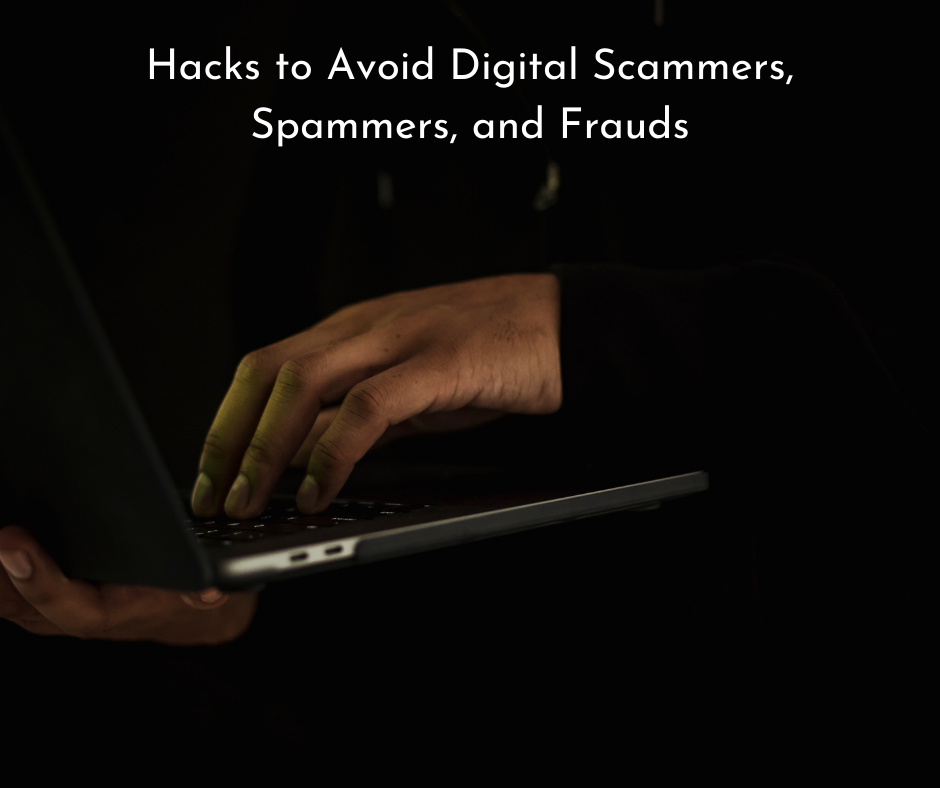How can you avoid online scammers, scams, spams, and frauds? Scams are one of the largest problems that face businesses today, as more and more people turn to the internet to do their shopping, banking, and even dating. Thankfully, there are some simple ways you can protect yourself from digital scammers, spammers, and digital fraud. Recently we talked to Faisal Abidi, Co-founder of RNF Technologies to write this article which will show you five hacks to avoid digital scammers, spammers, and frauds.

Don’t become the next victim
While it’s impossible to prevent being scammed by every scammer on Earth, there are a few simple steps you can take to avoid becoming one of their latest victims. One of these scams is when you receive an email from someone you know asking for money urgently. You might be thinking it’s been hacked – but that isn’t always true.
Create strong passwords
Creating a string of randomly-generated numbers, letters and symbols are essential in avoiding fraud—or at least making it more difficult for an identity thief to crack. This is why security experts advise that you don’t re-use passwords across multiple accounts; instead, create strong passwords for each account that are as different from one another as possible. It also doesn’t hurt to create passwords with a hint of personal relevance.
Use two-factor authentication
Account details can be stolen from a variety of sources—even if you’re using good password hygiene. One of your best weapons against hacking is called two-factor authentication: This adds an extra layer of security to your account by requiring you to log in with not only your username and password but also another piece of information that only you should know. A text message containing a unique PIN (personal identification number) will get sent to your phone.
Update your software regularly
You should be updating your software regularly. This isn’t just for security reasons; it also means that you are using all of its latest features, including spam filters. Many applications now have spam filtering built-in so that if you don’t recognize an email address or web address in your inbox, it will stop them from reaching your inbox. It’s important to stay up-to-date with whatever program you use in order to make sure it stays working properly.
Lock your accounts when not in use
Most major online accounts have a security setting that allows you to lock your account after a certain amount of time without activity. For example, you can make your Facebook profile go into sleep mode after a week or two of inactivity. Similar settings are available for Twitter profiles.
Never click on links from unknown emails or social posts
If you receive an email or social post that looks odd, it’s probably spam. If you are curious about it, do your research before clicking on any links. Know that legitimate companies have no need to hide their site behind a link—if they don’t trust you enough with their own URL, why should you trust them?
Keep an eye on your online reputation
Understanding your digital reputation is key to protecting yourself from fraud. One way to do so is by watching what others are saying about you online. And while most consumers rely on digital services like Yelp or Angie’s List for that info, online reputation management (ORM) tools offer an effective way of tracking your reputation across thousands of review sites. You should also be using a virtual private network (VPN) whenever you access a public wi-fi connection; hackers use free wifi for all sorts of nefarious activities.
Protect your privacy
You can expect a flurry of spam in your email inbox once you sign up for anything online. Protect your personal information by using different passwords for each account; never tell anyone your passwords (and if someone gets one, change it immediately); and read terms of service agreements before clicking I agree. Take security seriously and don’t be cavalier about it—the more informed you are about phishing scams, hackers, and other threats, the less likely you are to become a victim.
